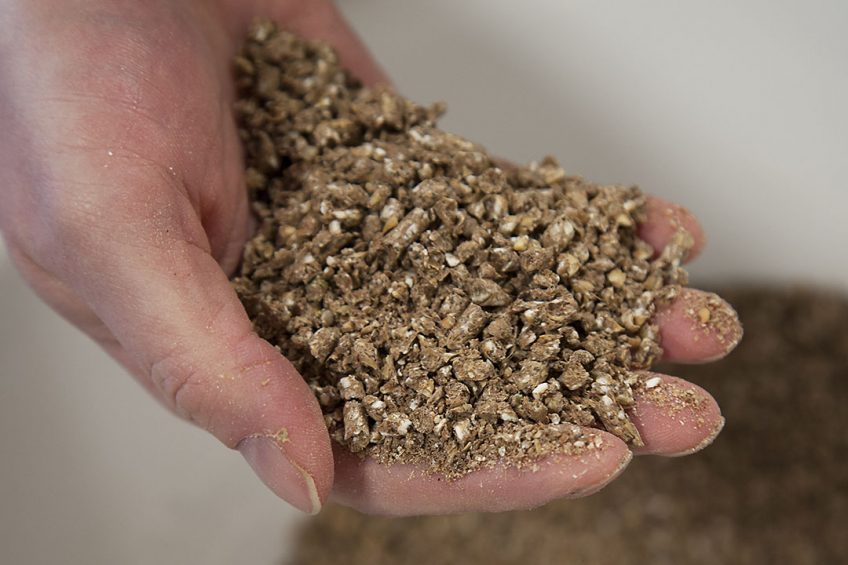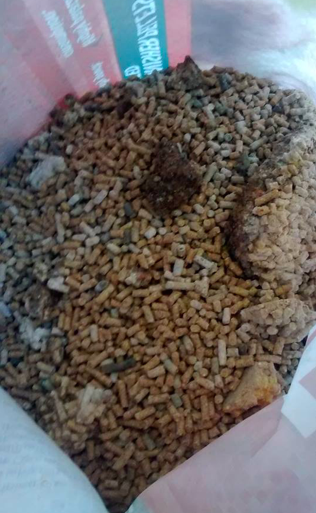Search
Featured post
If your Poultry Feed has Caked or formed Mould, should you still give it to your Birds?
If your Poultry Feed has Caked or formed Mould, should you still give it to your Birds?
Imagine this scenario: you have a flock of chickens that you care for day in and day out. You make sure they have fresh water, clean bedding, and nutritious feed. But one day, you notice that some of the feed was wet in storage and has developed mould. Do you still give it to your chickens?
The answer should be a resounding NO. Giving feed that has formed mould to your chickens can have serious consequences for their health. One of the main reasons is the risk of aflatoxicosis.
Aflatoxicosis is a disease caused by aflatoxins, toxic compounds produced by a fungus (mainly Aspergillus flavus). These molds can contaminate feed and grow under the right conditions, such as warm and humid environments. When chickens consume feed that is contaminated with aflatoxins, they can suffer from a range of health problems.
One of the most common symptoms of aflatoxicosis in chickens is decreased egg production. Aflatoxins can interfere with the chickens' reproductive systems, leading to a decrease in egg laying. This can not only reduce your profits if you are raising chickens for their eggs, but it can also be a sign of overall poor health in your flock.
In addition to decreased egg production, chickens suffering from aflatoxicosis may also experience reduced feed intake, weight loss, and immunosuppression. A weakened immune system can make chickens more susceptible to diseases and infections, further compromising their health and well-being.
Aflatoxicosis can also have long-term effects on your flock. Chronic exposure to aflatoxins can lead to liver damage and even increase the risk of liver cancer in chickens. This is a serious concern that should not be taken lightly when it comes to the health of your flock. Depending on how much of the toxins were taken in by the birds, it can also lead to immediate death.
To prevent aflatoxicosis in your chickens, it is crucial to always monitor the quality of their feed. Any feed that has developed mould should be discarded immediately and replaced with fresh, uncontaminated feed. Also, proper storage of feed in a clean and dry environment can help prevent the growth of mould and the formation of aflatoxins.
To sum it all up, never give feed that has formed mould to your chickens. The risk of aflatoxicosis and its detrimental effects on their health far outweigh the convenience of using contaminated feed. By being proactive in monitoring the quality of their feed and ensuring their overall well-being, you can help your flock thrive and stay healthy for years to come.
Search on Wikipedia
Labels
Most Popular
Tags
- animal health
- antibiotic abuse
- Antimicrobial resistance
- antimicrobial stewardship
- Brooding
- cat
- cat myths
- chicken
- cow
- dairy
- deworming
- dog
- dog care
- dog ethics
- dog grooming
- dog health
- Dog safety
- Dog training
- Dogs
- dress
- exercise
- exertional rhabdomyolysis
- Food safety
- hoof care
- hoof trimming
- Horse
- horse care
- horse disease
- Meat inspection
- Meat safety
- milking
- myths
- parvovirus
- pet
- pet care
- pet care.
- pet health
- Pig farming
- Pigs
- Poultry
- poultry farming
- poultry feed
- tick infestation




0 Comments